MercoPress. South Atlantic News Agency
Tag: Roberto Campos Neto
-
Wednesday, March 3rd 2021 - 08:40 UTC
Brazil's currency losing ground: central bank chief says it is not justified by economic fundamentals
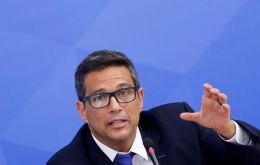
With public finances threatened, Brazil’s Real has suffered as investors adjust to changing liquidity conditions globally, but some of it has not been justified by economic fundamentals, central bank President Roberto Campos Neto said on Tuesday.
-
Friday, February 12th 2021 - 09:57 UTC
Brazilian Central Bank communication triggers confusion in financial markets
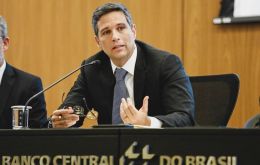
Brazil's Central Bank chief Roberto Campos Neto admitted on Thursday that the January interest fixing rate policy meeting release may have generated more confusion in financial markets, instead of more transparency in communications.
-
Friday, November 6th 2020 - 08:53 UTC
Brazil's spike in inflation is 'temporary', central bank president Campos Neto
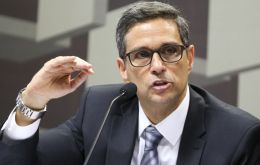
Brazil’s recent spike in inflation is temporary, central bank President Roberto Campos Neto said, adding, however, that policymakers are monitoring developments closely.
-
Wednesday, August 26th 2020 - 09:45 UTC
Brazilian central bank chief and Economy minister, “are fully aligned”
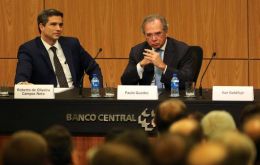
Brazilian central bank president Roberto Campos Neto said he has not been sounded out about replacing Economy Minister Paulo Guedes when he eventually leaves his post, and said the whole notion is a “non-issue.”
-
Wednesday, August 19th 2020 - 09:19 UTC
Despite rumors, Brazilian economy minister has no intention of resigning
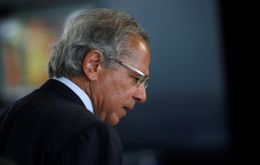
Brazil’s Economy Minister Paulo Guedes has no intention of resigning according to reports in the Sao Paulo media, in an attempt to quash rising speculation that political pressure for more public spending could force him to quit.
-
Monday, April 20th 2020 - 07:37 UTC
Brazilian central bank estimates economy will begin to recover in the fourth quarter
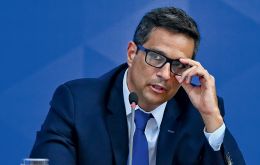
Brazil's central bank president Roberto Campos Neto said this weekend that Latin America's largest economy will begin to recover from the coronavirus crisis in the fourth quarter, according to an interview in local media.
-
Saturday, March 28th 2020 - 08:26 UTC
Brazil's central bank preparing a “financial bazooka” to prevent recession becoming depression
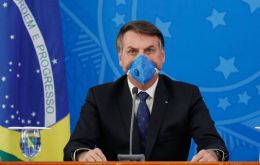
Brazil’s central bank could soon be forced to fire up the money printing presses if the coronavirus-fueled recession facing Latin America’s largest economy is as devastating as some economists fear.
-
Thursday, February 6th 2020 - 08:17 UTC
Brazilian central bank cuts interest rate to 4.25%, but the easing cycle could be coming to an end
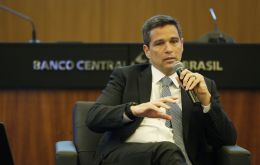
Brazil’s central bank intends to hold interest rates going forward to consider the impact of the record-breaking monetary easing cycle it concluded on Wednesday with a quarter-point cut.
-
Wednesday, November 20th 2019 - 09:55 UTC
Brazil's Real depreciating against the US dollar, but inflation remains below target
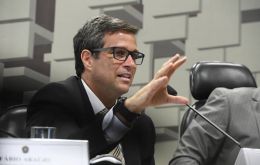
Brazil’s Real is sliding toward an all-time low against the U.S. dollar, but the central bank appears in no rush to intervene to slow or even reverse the fall. Despite the Real’s historical weakness, the market is functioning smoothly: depreciation, so far, has been fairly orderly, volatility is low, liquidity has not dried up, and the Real is not the only emerging market currency under pressure.
-
Thursday, October 31st 2019 - 09:49 UTC
Brazil cuts benchmark interest rate to an all time low of 5%; inflation running below target
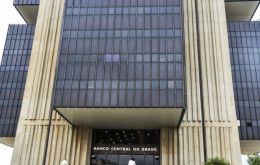
Brazil's central bank cut its benchmark interest rate to a new all-time low of 5.00% on Wednesday as expected, but signaled that further easing may be less aggressive than it has been in recent months, despite inflation running well below target.
